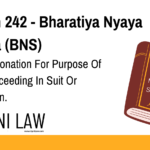Introduction
The Employees’ Provident Fund (EPF) is more than just a savings scheme—it’s a financial safety net for employees in India. Managed by the Employees’ Provident Fund Organisation (EPFO) and governed by the Employees’ Provident Funds and Miscellaneous Provisions Act, 1952, EPF ensures that employees have financial security after retirement or during times of need. If you’re an employee or employer, understanding EPF rules can help you make better financial decisions.
Who Is Eligible For EPF?
Employees working in companies with 20 or more employees.
Persons earning a basic salary of up to ₹15,000 per month (mandatory contribution).
Moreover, earning above ₹15,000 can voluntarily opt for EPF with employer consent.
Self-employed individuals are not eligible for EPF but can invest in the Public Provident Fund (PPF).
How Is EPF Contribution Calculated?
Employees contribute 12% of their basic salary and dearness allowance.
Employers also contribute 12%, which is divided as follows:
8.33% goes to the Employees’ Pension Scheme (EPS).
3.67% goes to the employee’s EPF account.
Businesses with less than 20 employees contribute at a reduced rate of 10% instead of 12%.
What Are The Key Benefits Of EPF?
Retirement savings provide financial security after retirement.
Tax benefits are available under Section 80C of the Income Tax Act.
Employees can avail of loans for housing, marriage, or medical emergencies.
A portion of the employer’s contribution goes to EPS, ensuring pension benefits.
Partial withdrawals are allowed under specific conditions.
When Can You Withdraw EPF Funds?
Full Withdrawal
Upon retirement at 58 years of age.
If unemployed for more than two months (with a 75% withdrawal option after one month).
Partial Withdrawal
Marriage or education – After seven years of service (50% of employee’s contribution).
Home purchase – After five years of service (90% of balance).
For medical emergencies – No minimum service period required.
How To Check EPF Balance?
Visit the EPFO website (www.epfindia.gov.in).
Log in with your Universal Account Number (UAN) and password.
Check the balance under the “Passbook” section.
You can also check via the UMANG app or by sending an SMS (EPFOHO UAN to 7738299899).
What Are The Penalties For Non-Compliance With EPF Rules?
Employers failing to contribute to EPF may face fines and legal action.
Late payment of EPF contributions attracts interest at 12% per annum.
Non-registration of eligible employees can result in penalties.
Conclusion
EPF is a valuable financial tool that safeguards employees’ futures, offering long-term savings, pension benefits, and emergency financial support. Understanding its rules and withdrawal process ensures employees make well-informed financial decisions while helping employers stay compliant with EPFO regulations. Whether you’re planning for retirement or need urgent financial assistance, EPF plays a crucial role in financial stability.








